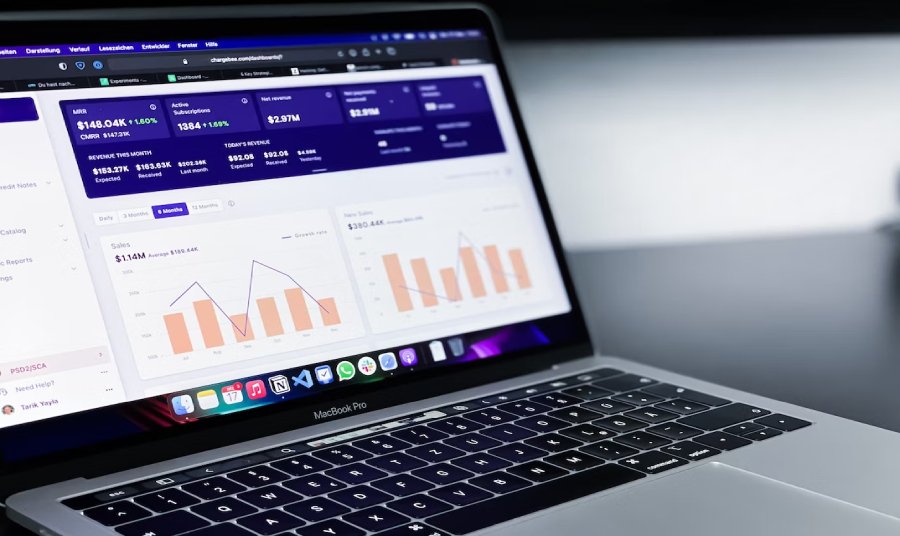Importing basics: What are Incoterms 2020?
For marketplace sellers based in the US who purchase wholesale goods from China, it's important to ensure that their foreign partners utilize the appropriate Incoterms. Read on to learn more about what Incoterms are, why they're important, and the latest updates that may be relevant to you.

As more businesses in the US seek to expand their global operations, those involved in international trade must be aware of the latest updates and changes introduced by Incoterms 2020.
By understanding these changes, businesses can make informed decisions and operate in compliance with the latest regulations, ultimately ensuring their success in the global marketplace.
This guide aims to provide an overview of Incoterms 2020, highlight the significant updates and changes, and explain how businesses can use these rules to their advantage to conduct international trade in a way that is both cost-effective and legally compliant.
This article will cover the following:
- What are Incoterms?
- What do Incoterms describe?
- Who creates the Incoterms?
- Why do Incoterms matter to US-based traders?
- What is the ICC Incoterms 2020?
- How do the ICC Incoterms 2020 differ from the Incoterms 2010?
- How to overcome international currency challenges when importing/exporting goods.
What are Incoterms?
With the vast array of trading practices across the globe, interpreting shipping and sales contracts can be challenging, leading to legal complexities for businesses engaged in international trade. To address these challenges, a standardized set of rules is necessary. The rules must be simple enough for all countries to adopt while ensuring clarity in the legal wording to prevent disputes and litigation.
Incoterms were created to address this need for legal clarity. These rules are the official commercial terms published by the International Chamber of Commerce (ICC). While they are official rules, their use is voluntary and not legally binding. Nonetheless, they are considered authoritative and globally recognized as best practices for international trade.
The International Chamber of Commerce (ICC) first created the Incoterms in 1921, and they were published in 1936. Since then, Incoterms have become a standardized contractual code worldwide. The rules are periodically updated when international trade events necessitate a reassessment. There have been additions and amendments to the Incoterms over the last century, in 1953, 1967, 1976, 1980, 2000, 2010, and 2020.
What do Incoterms describe?
The regulations define the obligations of buyers and sellers regarding the global shipment of goods. A sales agreement might not specify who’s responsible for a package after it reaches a destination. Incoterms ensure that those unresolved issues of accountability have a standardized answer.
In simple terms, Incoterms address three main things:
- Which party is responsible for arranging transportation (also called “carriage”) and insurance for the goods?
- Which party will bear the costs of transportation, insurance, and customs duties?
- When the risk (but not the title) passes to the buyer at the point of delivery.
Who decides the Incoterms rules?
The ICC, or the International Chamber of Commerce, created the original set of Incoterms. However, updating and expanding an international standard is no mean feat. That’s why 13 ICC commissions, comprised of private-sector experts worldwide with relevant experience in international business, law, trade, freight, and shipping, now determine the trade terms.
To update the Incoterm rules, a drafting group proposes revisions. The drafts are then circulated throughout ICC committees, and their feedback and suggestions are sent back to the drafting group. Once a final draft is prepared, it is approved by the ICC Commission on Commercial Law and Practice and submitted for adoption by the ICC Executive Board. The Incoterm updates undergo several rounds of revisions before reaching the adoption stage. The revised rules must reflect a consensus among industries and businesses worldwide.
After adoption, the rules become available worldwide for international trade, and businesses across the globe can then take note of the updates in their shipping operations.
Why do Incoterms matter for US-based traders?
When importing goods from China to sell or when exporting goods sold to China, US-based firms will have to use Incoterms when shipping items.
Below are the three-letter abbreviations of Incoterms commonly used for international shipments. The abbreviated Incoterms terms apply to any mode of transport (air, water, rail, or vehicle). They are listed on a sliding scale from most favorable to the supplier (EXW) to most beneficial to the customer (DDP):
- EXW (Ex Works): The customer delivers at the seller’s business premises.
- FCA (Free Carrier): The seller delivers the goods to a carrier or another person nominated by the buyer, either at the seller’s premises or at another named place.
- CPT (Carriage Paid To): The seller assumes the risks and costs of delivering goods to a carrier to an agreed-upon destination.
- CIP (Carriage and Insurance Paid): The seller delivers the goods to a destination previously agreed to by the seller and the buyer and is responsible for insuring them during transit.
- DAP (Delivery at Place): The seller assumes all risks and costs associated with delivering goods to an agreed-upon location, including packaging, documentation, export approval, loading charges, and delivery.
- DPU (Delivery at Place Unloaded): Requires the seller to deliver the goods at the buyer’s disposal after they have been unloaded from the arriving means of transport.
- DDP (Delivery Duty Paid): All risks, costs, and transportation responsibilities lie with the seller.
US importers or exporters need to understand all of the Incoterms regardless of the mode of transportation, as they are intended to be used in all types of transportation, including air, water, rail, or vehicle.
It’s essential to clearly understand each Incoterm and its implications to ensure that the terms agreed upon between the buyer and the seller accurately reflect their respective responsibilities and liabilities throughout the transaction.
Importers and exporters should carefully consider the mode of transportation, the nature of the goods being transported, and the parties involved when choosing the appropriate Incoterms for their transactions.
Although it’s still possible to use previous versions of the Incoterms rules (such as Incoterms 2010), it’s not recommended. If you choose to use a version of Incoterms other than ICC Incoterms 2020, it’s necessary to explicitly state which version you are using and ensure that your documentation is accurate throughout the transaction.
How do the ICC Incoterms 2020 differ from Incoterms 2010?
What’s new in Incoterms 2020?
The changes made in the 2020 update address increased security requirements, improved clarity on cost allocation, and tackled insurance concerns. Here are the latest updates to the Incoterm rules and how they compare to the previous 2010 editions:
DAT becomes DPU
The most noticeable change for those familiar with Incoterms is that Delivered at Terminal (DAT) became Delivered at Place Unloaded (DPU). The ICC decided to rename the term for situations where the buyer or seller of the goods would want the delivery to occur somewhere other than a terminal.
FCA and on-board Bills of Lading
This update refers to the term Free Carrier (FCA), where the seller is responsible for making the goods available to the buyer at their premises or a named place. In this instance, the seller is responsible for loading the goods onto the buyer’s mode of transportation.
Issues arose with this term when the seller was responsible for loading goods into transportation hired by the buyer instead of directly with an international carrier. Buyers and sellers may have agreed to use a letter of credit as a payment method for this transaction. Still, banks usually require a Bill of Lading to be presented with an onboard notation before getting paid for trade. The issue is that international carriers usually won’t provide a Bill of Lading to sellers who did not deliver the goods directly.
Under the new ICC Incoterms 2020, FCA states that all parties agree the buyer should instruct their carrier to issue a bill of lading. The onboard notation becomes the seller’s responsibility to avoid the logistics issues described above.
Different levels of insurance coverage
CIF and Carriage and Insurance Paid To (CIP) are the only two Incoterms that determine which party is responsible for insuring the goods during transportation. In both cases, the seller is responsible for providing insurance coverage.
Under the previous Incoterms 2010, the seller was required to obtain the minimum insurance coverage under the Institute Cargo Clauses for both CIF and CIP. However, under the ICC Incoterms 2020, the seller must now obtain a higher level of insurance coverage for CIP — equivalent to at least 110% of the value of the goods. However, the insurance requirement for CIF remains the same.
DIY sellers
The ICC Incoterms 2010 used language that indicated that sellers would be working with third-party delivery companies to transport goods to their intended destination.
The new ICC Incoterms 2020 acknowledges some sellers might use their own transportation to deliver goods. They are referred to as “do-it-yourself” (DIY) sellers. The terms now allow sellers to either make a sales contract for the carriage of goods or to arrange transportation themselves, depending on their preference.
Security requirements
Security measures for importing and exporting have significantly increased over the last decade, and there are now more formal rules governing security. The 2020 Incoterms explicitly outline these security requirements in defining the responsibilities of buyers and sellers in international trade.
How to overcome international currency challenges when importing or exporting goods
Running a business is rarely straightforward, and there are always administrative challenges when managing an international venture. Using accounting software can help streamline paperwork and save time.
With a Zyla Account, you can open multiple local currency accounts for free, making it easier to pay partners, suppliers and staff. So, whether you’re buying products from overseas or organizing shipping, the Zyla Account’s got you covered. Open an account today and you could be approved, set up and trading internationally in 24 hours. Get started or find out more by calling (855) 797-3366 today.



